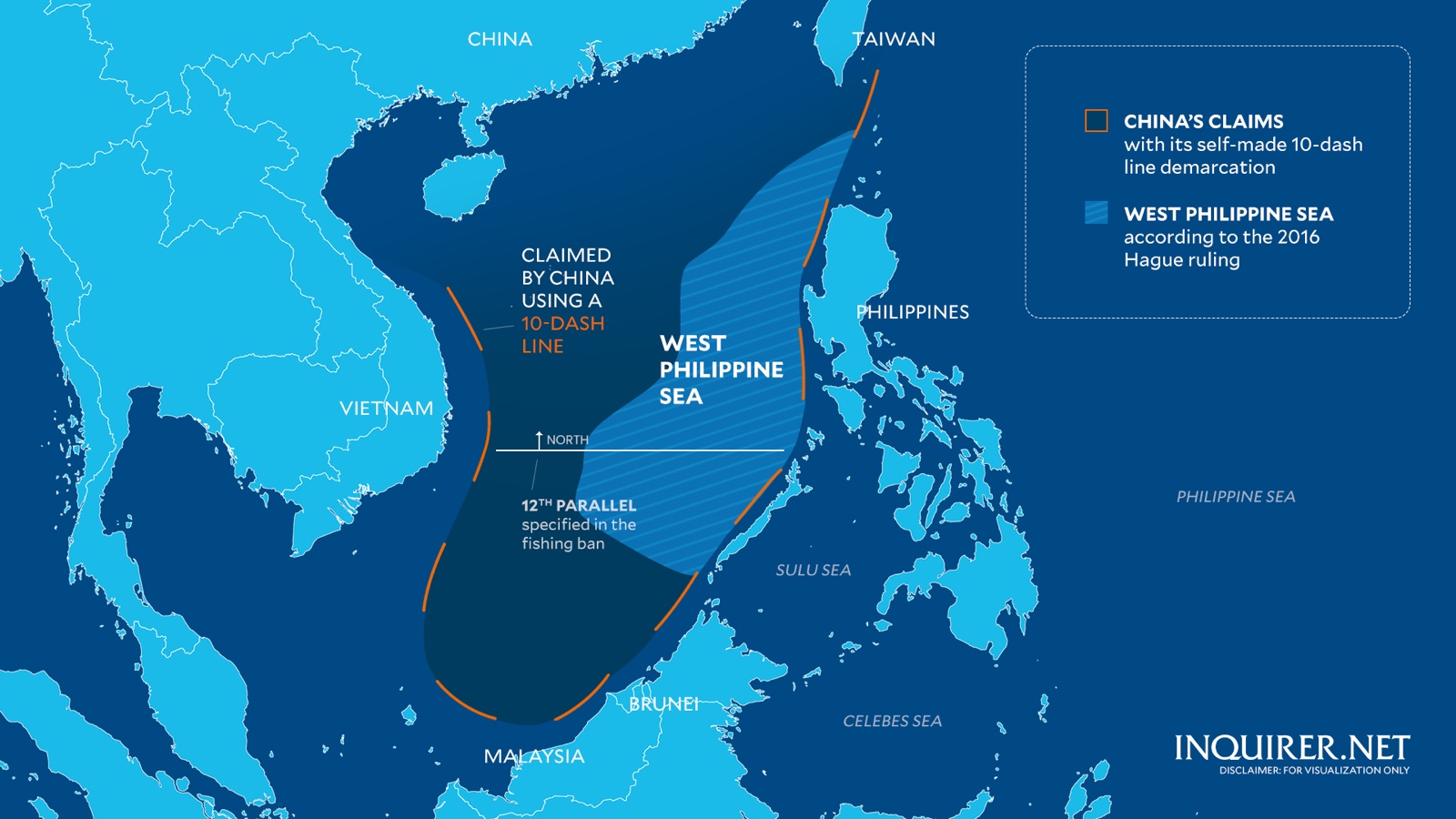MANILA, Philippines — China’s annual fishing ban, which covers parts of the West Philippine Sea, is already in effect, but no Filipino fishers have been arrested since its implementation years ago due to what analysts think as Beijing being wary of a major backlash.
Beijing’s fishing moratorium in South China Sea, which outright disregards Manila’s sovereign rights in the western section of its exclusive economic zone (EEZ), already started on May 1, 2024 and lasts until September 16, 2024.
But Leonardo Cuaresma, president of the Zambales-based New Masinloc Fishermen Association on Monday said their boats continue to sail in the West Philippine Sea even during this intrusive fishing ban.
READ: Life goes on for local fishers amid China ban
No Filipinos—and fisherfolk from other countries who are claimants in South China Sea for that matter like Vietnam and Indonesia—have been arrested since this revised fishing moratorium was first implemented in 2021, Commodore Roy Vincent Trinidad, the Navy spokesperson for the West Philippine Sea, also confirmed on Wednesday.
READ: No Filipinos arrested over fishing ban by China since 2021 — Navy spox
Fishing ban consequence
A geopolitical analyst said China is not acting on its unilateral policy due to potential political repercussions.
“China is well aware of the large political risks of doing such an illicit activity in another country’s EEZ,” said Don McLain Gill, a lecturer at the De La Salle University’s Department of International Studies, in a message to INQUIRER.net on Wednesday.
Security expert Chester Cabalza also noted that the anger of Filipinos will further erupt once China seriously implements its fishing ban.
“Revolutions begin when you deprive people of food,” Cabalza told INQUIRER.net on Wednesday, also noting that the French Revolution erupted “when no bread was left for the masses.”
“It’s the same thing for Filipinos who will protect their fish and salt for economic sustenance,” Cabalza, president and founder of Manila-based think tank International Development and Security Cooperation, also said.
Toothless policy?
With these factors in mind, Gill, however, said it is wrong to deem toothless China’s unilateral policy, which, he said, is part of its lawfare or usage of “legal” means to cause problems for its adversaries.
“It is … wrong to dismiss this [policy] as having no teeth because we have to understand that China imposes such illegal lawfare strategies not simply to show its dominance in the maritime domain, but to also catalyze domestic social divisions in countries like the Philippines,” he also said when ask if China’s inaction made its unilateral policy “toothless.”
Cabalza said China’s unilateral policy will become toothless if the country continues to assert its rights in its own EEZ.
“If the Philippines and the Filipino people are united we become stronger,” Cabalza said. “This what makes the Chinese rethink of their unilateral fishing ban toothless.”
Since 1999, Beijing has imposed a yearly fishing ban in the vast South China Sea. However, in 2021, it adjusted the seasonal marine fishing moratorium in South China Sea north of the 12 degrees north latitude to define the fishing ban area, now clearly including parts of the West Philippine Sea.
Possible approaches
When this 2021 ban was first announced, the Department of Foreign Affairs filed a diplomatic protest, and is routinely doing so annually ever since.
In line with this, Gill said Manila “must maintain a holistic and multidimensional approach” to Beijing’s actions in the West Philippine Sea.
For its part, Vietnam’s foreign ministry also objected to this unilateral policy, saying it violates Hanoi’s sovereignty, according to its spokesperson Pham Thu Hang.
Cabalza noted that Vietnam and Indonesia took decisive actions against China’s illegal fishing activities.
READ: Report: Vietnam, China vessels fire water cannons
In May 2014, Vietnam’s ship fired water cannons against China’s vessel near an oil rig positioned by Beijing in Vietnam’s EEZ. About two months later, Beijing removed the oil rig.
Indonesia also sank 41 boats—including those based in Beijing—for fishing in Jakarta’s EEZ in the South China Sea in 2015.
“[W]hen Indonesian and Vietnamese coast guard and naval forces attacked Chinese illegal fishers in their contested waters, China retreated,” Cabalza said. “China retreats when the opponent seriously challenges and defies them.”
